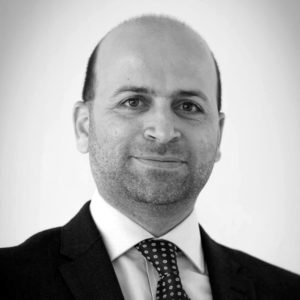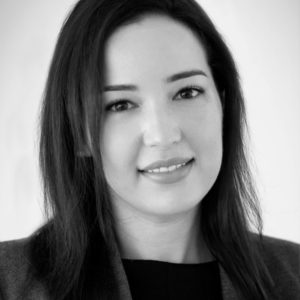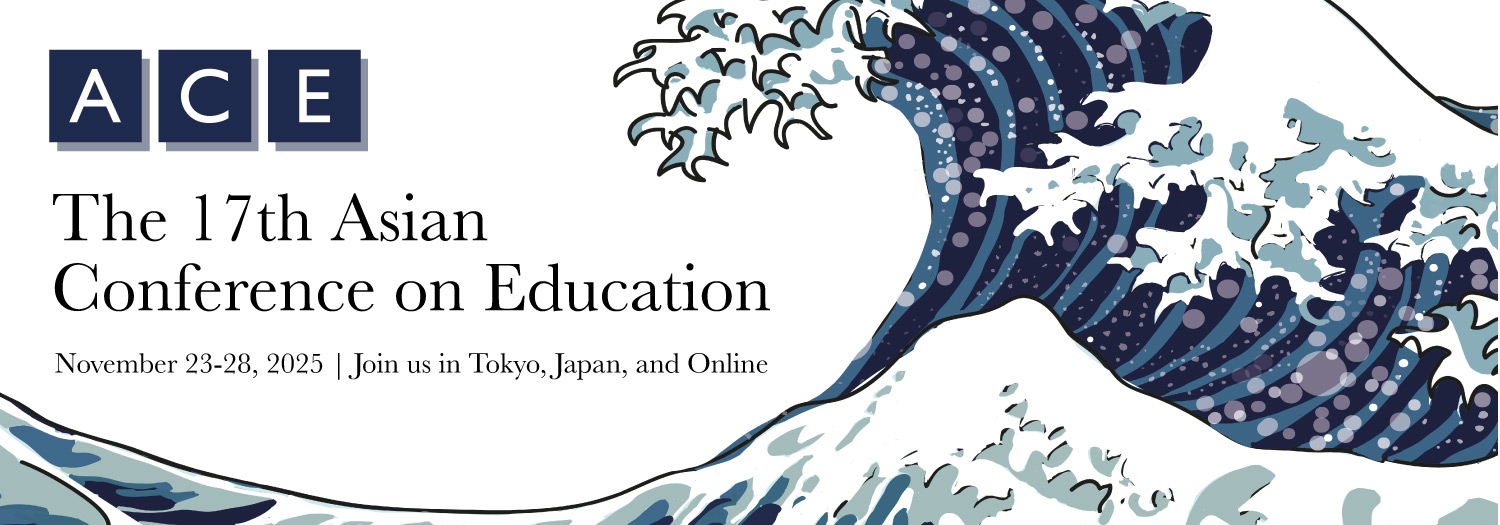A panel from Lusail University, Qatar, and the University of Oklahoma, United States, will present “Mental Health in Action: Strategies to Build Teacher and Student Capacity” at The 14th Asian Conference on Education (ACE2022). This forum discussion will identify strategies to address mental health challenges and promote well-being among teachers and students.
To participate in ACE2022 as an audience member, please register for the conference.
This plenary will also be available for IAFOR Members to view online. To find out more, please visit the IAFOR Membership page.
Abstract
Mental Health in Action: Strategies to Build Teacher and Student Capacity
Mental health of teachers and students has been a growing concern in recent years even prior to the COVID-19 pandemic. One of the tangible side effects of the pandemic is its negative impact on teachers’ and students’ mental health. Teachers experienced difficulties in using technology for online classes and were unsatisfied with the administrative support for online education. In addition, the number of online lectures and the preparation time have increased, which resulted in a huge workload, stress, and anxiety. The stresses and restrictions associated with the pandemic have also put students at greater risk of developing mental health issues, which drastically decreased their academic success, their social interactions, as well as their future career and personal opportunities. Regardless of how long the current pandemic lasts, the normal in education is unlikely to return anytime soon. The pandemic led to a change in the educational system, ranging from delivery mode to shifting to a new paradigm moving to digital and hybrid solutions. This forum discussion will identify strategies to address mental health challenges and promote well-being among teachers and students. For all those who are struggling with mental health issues, the discussion will provide valuable insights into various ways of capacity building in the new normal of education.
Biography
Abdulqader Alyasin
Lusail University, Qatar
 Abdulqader Alyasin has been working in English language teaching and education in different countries, including Syria, the UK, and Qatar. He obtained his MA in English Language Teaching (ELT) and PhD in ELT and Applied Linguistics from the University of Warwick, United Kingdom, and to further enhance his practical teaching skills, he attended a training course and was awarded a Certificate in English Language Teaching to Adults (CELTA) from Cambridge University. Prior to taking up the role of Assistant Professor at Lusail University, Alyasin worked as Academic Writing Lecturer, Research Methods Tutor, English for Academic/Specific Purposes Tutor, and Personal Tutor at the University of Warwick, United Kingdom. Throughout his career in these positions, he coordinated, developed and taught academic writing and research skills, data collection and analysis methods, phonetics and phonology, oral communication, grammar, syntax and semantics, linguistics, teaching methods, reading, composition, and comprehension. Alyasin also worked as a book proposals peer reviewer for Cambridge University Press. With a longstanding interest in theory and practice in language studies, he has mentored, supervised and examined MA students in TESOL, ELT, and Applied Linguistics. Alyasin’s research interests revolve around teacher cognition, curriculum policy and practice, educational change, teacher training and development, (English) language teaching in difficult and crisis circumstances, and bilingual education.
Abdulqader Alyasin has been working in English language teaching and education in different countries, including Syria, the UK, and Qatar. He obtained his MA in English Language Teaching (ELT) and PhD in ELT and Applied Linguistics from the University of Warwick, United Kingdom, and to further enhance his practical teaching skills, he attended a training course and was awarded a Certificate in English Language Teaching to Adults (CELTA) from Cambridge University. Prior to taking up the role of Assistant Professor at Lusail University, Alyasin worked as Academic Writing Lecturer, Research Methods Tutor, English for Academic/Specific Purposes Tutor, and Personal Tutor at the University of Warwick, United Kingdom. Throughout his career in these positions, he coordinated, developed and taught academic writing and research skills, data collection and analysis methods, phonetics and phonology, oral communication, grammar, syntax and semantics, linguistics, teaching methods, reading, composition, and comprehension. Alyasin also worked as a book proposals peer reviewer for Cambridge University Press. With a longstanding interest in theory and practice in language studies, he has mentored, supervised and examined MA students in TESOL, ELT, and Applied Linguistics. Alyasin’s research interests revolve around teacher cognition, curriculum policy and practice, educational change, teacher training and development, (English) language teaching in difficult and crisis circumstances, and bilingual education.
Hiba Harb
Lusail University, Qatar
 Dr Hiba Harb holds a PhD in Language Sciences and a master’s in Education and Training. She is currently Assistant Professor at Lusail University, Qatar, and the Head of the Training and Capacity-Building Department. She is also President of the Association of Teachers of French in Qatar. She has more than ten years of teaching experience at a university level, she teaches language courses and various subjects in French and English languages. Dr Hiba has solid experience in designing new courses and training programs, she is an instructional designer and trainer. She has participated in international conferences and her research interests focus on educational technologies, pedagogical approaches, language teaching, course design and development, teachers’ training, and communication. She believes that creative and resourceful teachers should encourage creativity and higher-order thinking in a way that increases student performance, her career goal is to build teaching methods that increase students’ autonomy through creativity.
Dr Hiba Harb holds a PhD in Language Sciences and a master’s in Education and Training. She is currently Assistant Professor at Lusail University, Qatar, and the Head of the Training and Capacity-Building Department. She is also President of the Association of Teachers of French in Qatar. She has more than ten years of teaching experience at a university level, she teaches language courses and various subjects in French and English languages. Dr Hiba has solid experience in designing new courses and training programs, she is an instructional designer and trainer. She has participated in international conferences and her research interests focus on educational technologies, pedagogical approaches, language teaching, course design and development, teachers’ training, and communication. She believes that creative and resourceful teachers should encourage creativity and higher-order thinking in a way that increases student performance, her career goal is to build teaching methods that increase students’ autonomy through creativity.
William C. Frick
University of Oklahoma, United States
 William C. Frick, PhD is the Rainbolt Family Endowed Presidential Professor of Educational Leadership and Policy Studies in the Jeannine Rainbolt College of Education at the University of Oklahoma, United States. He is the founding director of the Center for Leadership Ethics and Change, an affiliate body of the international Consortium for the Study of Leadership and Ethics in Education (CSLEE) of the University Council for Educational Administration (UCEA). He serves on the editorial board of the Journal of School Leadership and the IAFOR Journal of Education and is currently the editor of Values and Ethics in Educational Administration. Dr Frick has approximately 15 years of experience as a practitioner in public schools including building and district-level administration and 16 years as research university faculty. He is a former 2016-17 Core Fulbright U.S. Scholar to the Republic of Georgia and is currently a Fulbright Public Policy Fellow to Côte d’Ivoire this coming summer 2023. A doctoral graduate of Pennsylvania State University, his research interests include the philosophy of administrative leadership, school system reform within urban municipality revitalisation efforts, and broader cultural studies exploring the intersection of identity and schooling.
William C. Frick, PhD is the Rainbolt Family Endowed Presidential Professor of Educational Leadership and Policy Studies in the Jeannine Rainbolt College of Education at the University of Oklahoma, United States. He is the founding director of the Center for Leadership Ethics and Change, an affiliate body of the international Consortium for the Study of Leadership and Ethics in Education (CSLEE) of the University Council for Educational Administration (UCEA). He serves on the editorial board of the Journal of School Leadership and the IAFOR Journal of Education and is currently the editor of Values and Ethics in Educational Administration. Dr Frick has approximately 15 years of experience as a practitioner in public schools including building and district-level administration and 16 years as research university faculty. He is a former 2016-17 Core Fulbright U.S. Scholar to the Republic of Georgia and is currently a Fulbright Public Policy Fellow to Côte d’Ivoire this coming summer 2023. A doctoral graduate of Pennsylvania State University, his research interests include the philosophy of administrative leadership, school system reform within urban municipality revitalisation efforts, and broader cultural studies exploring the intersection of identity and schooling.
Murielle El Hajj Nahas
Lusail University, Qatar
 Dr Murielle El Hajj Nahas holds a PhD in French Language & Literature from the Lebanese University, Lebanon. She is currently Assistant Professor at Lusail University, Qatar. She is also Associate Editor of the IAFOR Journal of Literature & Librarianship and the IAFOR Journal of Education (Language Learning in Education issues), The International Academic Forum (IAFOR), Japan, as well as Editorial Board Member of In Analysis, revue transdisciplinaire de psychanalyse et sciences, Elsevier Masson SAS, France. Her domain of research focuses on psychoanalysis of literature, the perspective on the unconscious in literary study, the roles of the instances involved in the analytical/critical praxis, and the relation between literature and psychoanalysis. Her research interests include analysis of written narrative structure and focalization; comparative studies of literary genres; discourse analysis and semantics; French linguistics, literature, modernism, and postmodernism studies; gender studies; literary semiotics and semiology; psychoanalysis; psychoanalytic criticism and textoanalysis; rhetoric and stylistics; and schizoanalysis. She has published peer-reviewed book chapters and articles, as well as book reviews and poems in international journals. (ORCID ID: https://orcid.org/0000-0002-9445-6281)
Dr Murielle El Hajj Nahas holds a PhD in French Language & Literature from the Lebanese University, Lebanon. She is currently Assistant Professor at Lusail University, Qatar. She is also Associate Editor of the IAFOR Journal of Literature & Librarianship and the IAFOR Journal of Education (Language Learning in Education issues), The International Academic Forum (IAFOR), Japan, as well as Editorial Board Member of In Analysis, revue transdisciplinaire de psychanalyse et sciences, Elsevier Masson SAS, France. Her domain of research focuses on psychoanalysis of literature, the perspective on the unconscious in literary study, the roles of the instances involved in the analytical/critical praxis, and the relation between literature and psychoanalysis. Her research interests include analysis of written narrative structure and focalization; comparative studies of literary genres; discourse analysis and semantics; French linguistics, literature, modernism, and postmodernism studies; gender studies; literary semiotics and semiology; psychoanalysis; psychoanalytic criticism and textoanalysis; rhetoric and stylistics; and schizoanalysis. She has published peer-reviewed book chapters and articles, as well as book reviews and poems in international journals. (ORCID ID: https://orcid.org/0000-0002-9445-6281)

